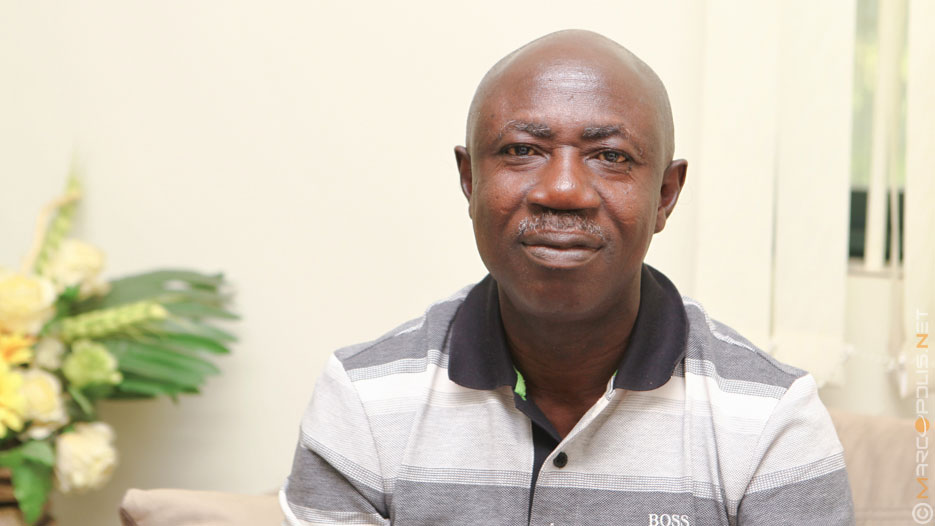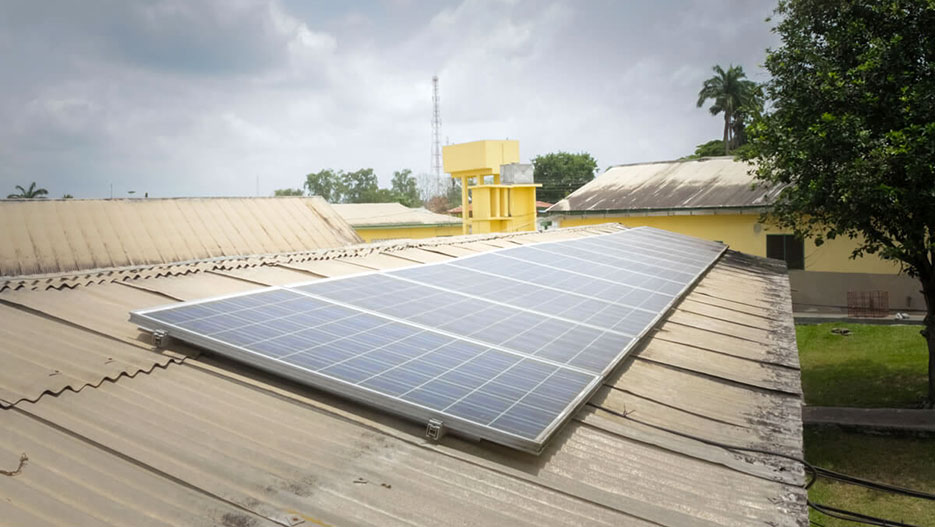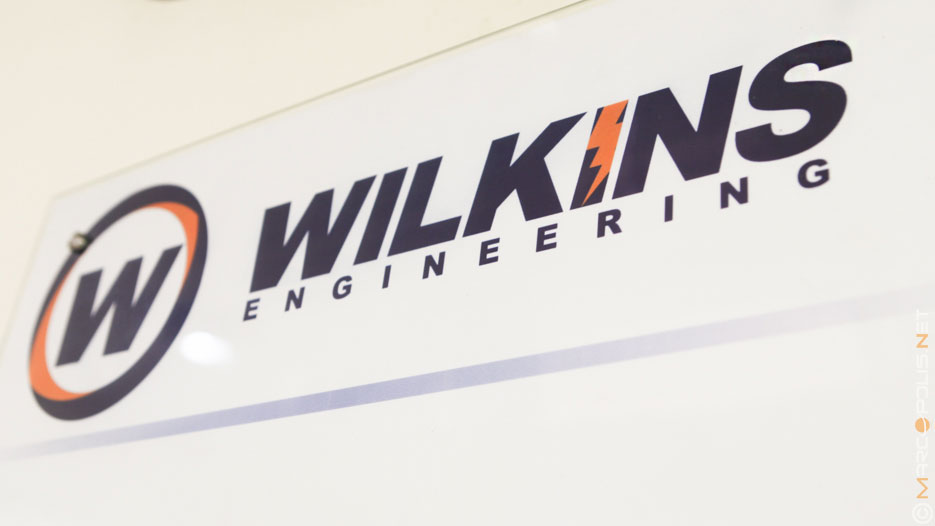Electrical Solutions for Ghana | Wilkins Engineering
Wilkins Engineering provides top electrical solutions for Ghana. “Our major contribution has been providing solutions for energy needs.”
Interview with Omane Frimpong, CEO of Wilkins Engineering

What is your evaluation of the economic situation in Ghana, and how is it affecting your sector and the delivery of electricity in general?
The economy hasn’t been doing that well this year. The Government of Ghana is our major client, and when government spending is reduced, it affects everything including our business. The culminating effect is that, the projects we are undertaking for the government get slowed down.
What are the current trends in your sector? What are, for example, the areas that require immediate investments? Where do you see potential?
The trend currently is shortage of power. We therefore see so much potential for power generation because the current overall national power deficit is about 360 MW and renewable energy for example can offset over 90% of this deficit because of the abundance of renewable resources like sunlight in this part of the world. Secondly, the power transmission and distribution network suffers a lot of power losses and the culminating effect as we all know is a very low overall network efficiency. There is therefore potential for new transmission and power distribution projects and refurbishment of the existing power network as a whole.
From my point of view, immediate investment is needed in the transmission and distribution network because once the network efficiency improves, the overall power deficit will surely improve and the actual power demand will be known and addressed appropriately.

What has been Wilkins Engineering’s journey since its founding 22 years ago? What have you accomplished?
The journey has been from a one-man business to, now, one with over 1,000 workers. We started as an engineering consulting company, then we transformed into an electrical construction company. We have engineers and a lot of artisans. We have more than 1,000 artisans who are working for us in the villages. Only the management and administrative staff are in the office. All the engineering and technical teams are on the field.
What role is Wilkins Engineering playing within the industry? What has been your major contribution?
Our major contribution has been providing solutions for energy needs. In 1989, the government instituted a law to electrify the whole country. And we are playing a major role in terms of installation works, and also in terms of putting up solar PV systems in peoples’ homes. In 1998, we were the first company to have installed about a thousand solar PV systems. As at 1998, the solar PV technology was not common and was still a new tech in Ghana. But together with a Spanish company called Isofoton, we accomplished a lot of projects in the country, and that was the beginning of our solar journey in the energy industry.
The journey has been from a one-man business to, now, one with over 1,000 workers.
Aside from your niche within solar energy, what else does Wilkins Engineering do to stand out from its competitors?
Wilkins’ ability to deliver on time is another area where we stand out. Any time we did a job for our international contractors, they always came back looking for us, which meant that they were satisfied with our work. This has been our hallmark: on-time delivery.
These are specifically projects in the grid and also in solar energy?
Yes. For instance, in 1998, we were working with Isofoton from Spain who was embarking on solar projects and we were their subcontractors in Ghana. So we did all the installations. In the same year, we also worked with Elecnor, a Spanish company on an electrification project in which one hundred communities in the Upper East region of Ghana were connected to the grid. They were doing electrification. They were connecting over 100 communities in the Upper East. We did all the jobs for them. So this is how we have worked with international partners.
Are you currently working on some projects for which you are looking for international partners?

Yes. We are currently working on couple of solar projects that require international partnership. They are: a 5 MW grid tied solar generation plant, 25 MW and 7 MW solar generation plants for two different cement factories respectively in Ghana.
What are some of your most successful, landmark projects in Ghana?
The landmark project we are most proud of is when, in 2000, we installed a 50-kilowatt solar system in the Ministry of Energy building. At the time, it was the biggest solar system in Ghana. Solar was not common then, and to have installed an operational 50-kilowatt system, it was a great achievement for us.
How do you see the second half of 2015 and then 2016? What is your strategy for the company?
In the months and years ahead, we think the future is going to be brighter than before. Remember, in Africa, 2016 is usually an election year, and governments tend to spend more in an election year. They tend to do more projects. And when the government is doing more projects that means more business for us. So we see that, in the years ahead, there will be a lot of opportunities for us.
What, on the other hand, are your challenges? Is it finding the right workforce, the overall implementation of your strategic goals?
Our major challenge has been the issue of financing, in terms of interest rates. Even though funds are readily available when we need them from our bankers, the interest rates they charge us takes away a large portion of our profits, making the venture not so profitable after all. Another challenge we face is governmental bureaucracy. For instance, if you are clearing goods from the harbour, the paperwork you have to go through is often massive.
In terms of looking for international partners, is this for the financing side or the technical know-how? What exactly is their role when they collaborate with you?
The role of international partners mostly has been financing. This is because there are a lot of projects available in Ghana, but financing them without partners had always been a problem because of some of the financial challenges stated above. A case in point is the recent load shedding situation in Ghana because of our power deficit. The solution to the problem is obvious; we need to generate electricity and sell it. However, there is a need for huge capital investments to put up these power plants. A second case in point is grid extension and rural electrification. Even though Ghana is among the countries with the highest rates of electrification, there are still many areas that need electricity. Furthermore, our electrical network is old and dilapidated and therefore needs overhauling. All of these things require a lot of investments and our international partners have been very helpful in this key area.
Are there investments needed also on the technical side, or is the majority financial?
We certainly need investments on the technical side also, especially in the new areas that we want to explore. For instance, we want to go into putting up small-scale dams. It is therefore imperative that we invest into honing our technical staff for this new area we want to explore in tandem with financial investments as mentioned earlier.
Is there anything else you would like to mention—a message you have about Ghana, about its potential?
My message is that as you grow and make progress and you reach a point where you detect any retrogression, you have to strategize so you can continue making progress. In a nutshell, one strategy cannot guarantee progress or growth at all times, when one strategy fails, there is a need for a new one for progress to continue. With the current economic situation in the country, all hope shouldn’t be lost because as Ghanaians, we see a very bright light at the end of the tunnel for our nation.